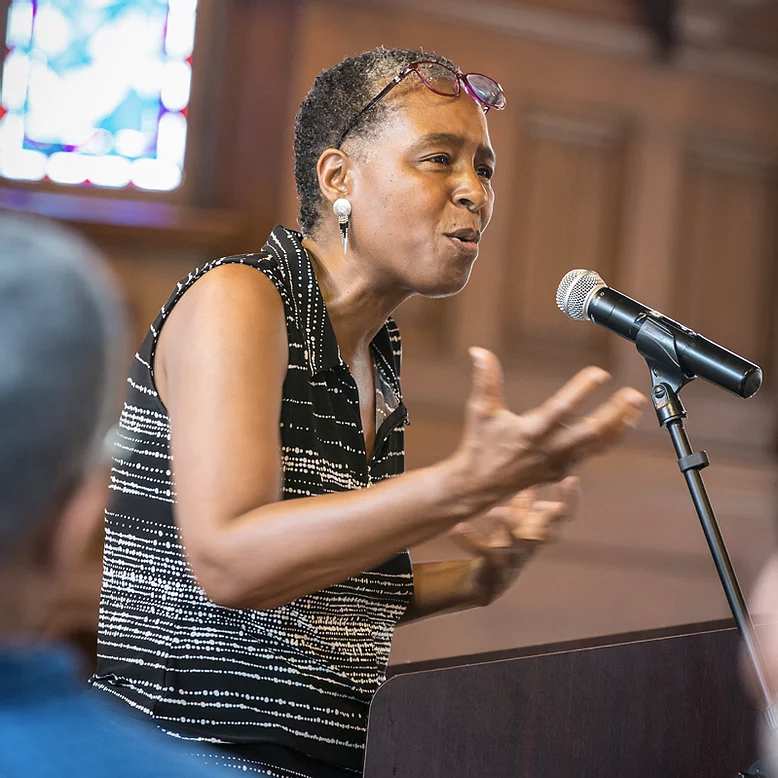The Rev. Traci West is a giant among scholar-activists in religion. A professor at Drew Theological School, she has devoted her career to addressing violence against women, particularly Black women. And she has greatly informed my own work as a Christian ethicist. If you have ever heard the term “victim-survivor,” you too have been touched by her influence, This week, she is celebrated as one of 1000 influential women scholars in religion across the globe.

West is among the women featured in Challenging Bias Against Women Academics in Religion, volume 2 of the Women in Religion book series published by Books@Atla Open Press, Scholarly Editions. This book, released October 25, is available free online or as a PDF and is also available for purchase through Amazon.
The purpose of this book series is to overcome systemic gender biases inhibiting the visibility of women scholars. These books address and redress the question, Why are women religious scholars absent as biographical subjects in secondary literature generally and on digital knowledge platforms specifically? Acording to the volume and series editor Colleen Hartung,
The heart of the 1000 Women in Religion Wikipedia Project, and the inspiration for the Women in Religion series, is a list of women important to the world’s religious and wisdom traditions who should be on Wikipedia but are not (Wikipedia n.d., “Wikipedia: WikiProject Women in Red/1000 Women in Religion”). The project aims to increase the representation of women on digital platforms like Wikipedia and also includes developing strategic ways of sourcing for and writing about women as a means of overcoming barriers to the publication of biographical materials about women generally.
Colleen Hartung, Challenging Bias Against Women Academics in Religion, ii
I have learned much from West’s resistant, disruptive, and defiant approach to Christian ethics. If you would like to learn more about Traci West, I invite you to read the fifteen-page professional biography written by Carolyn Bratnober, included as chapter five in this book.